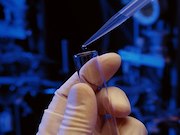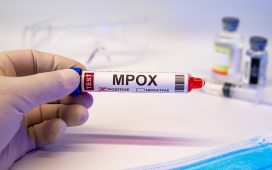PD patients have significantly decreased total alpha-synuclein in tears compared with healthy controls
FRIDAY, Feb. 23, 2018 (HealthDay News) — Alpha-synuclein levels in tears differ significantly for patients with Parkinson’s disease (PD) and healthy controls, according to a study scheduled for presentation at the upcoming annual meeting of the American Academy of Neurology, to be held from April 21 to 27 in Los Angeles.
Mark Lew, M.D., from the Keck School of Medicine at the University of Southern California in Los Angeles, and colleagues collected tear samples from 55 patients with PD of varying severity and 27 age- and gender-matched non-PD controls. Tears were pooled from both eyes for analysis of alpha-synuclein, CC chemokine ligand 2 (CCL-2), and DJ-1 (Parkinson’s disease protein 7).
The researchers observed a significant decrease in total alpha-synuclein in tears from PD patients relative to healthy controls (423.12 ± 52.6 versus 703.61 ± 136.4 pg/mg tear protein). PD patients also had significantly increased oligomeric alpha-synuclein relative to controls (1.45 ± 0.31 versus 0.27 ± 0.07 ng/ng tear protein). There was no difference in CCL-2 or DJ-1 between PD patients and healthy controls.
“We believe our research is the first to show that tears may be a reliable, inexpensive, and noninvasive biological marker of Parkinson’s disease,” Lew said in a statement. “Knowing that something as simple as tears could help neurologists differentiate between people who have Parkinson’s disease and those who don’t in a noninvasive manner is exciting.”
Copyright © 2018 HealthDay. All rights reserved.








